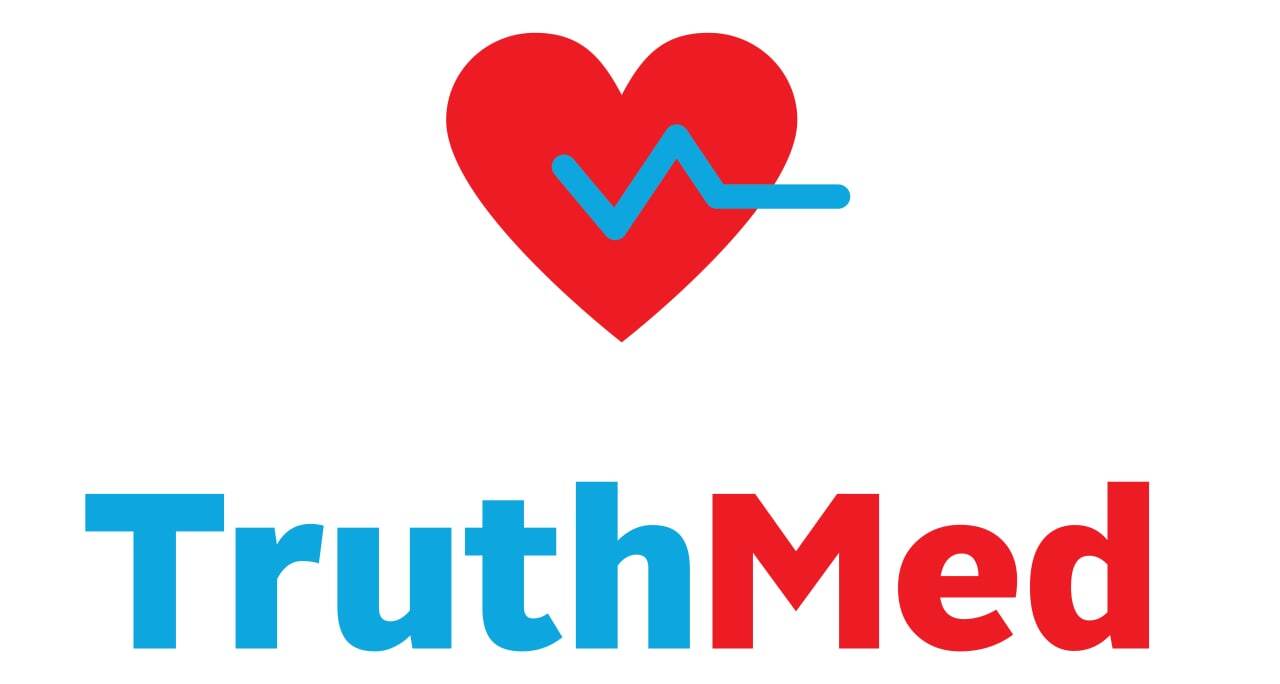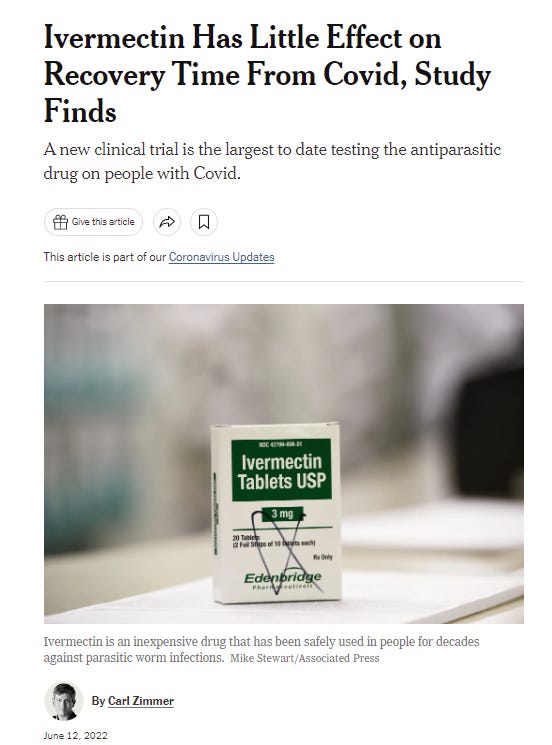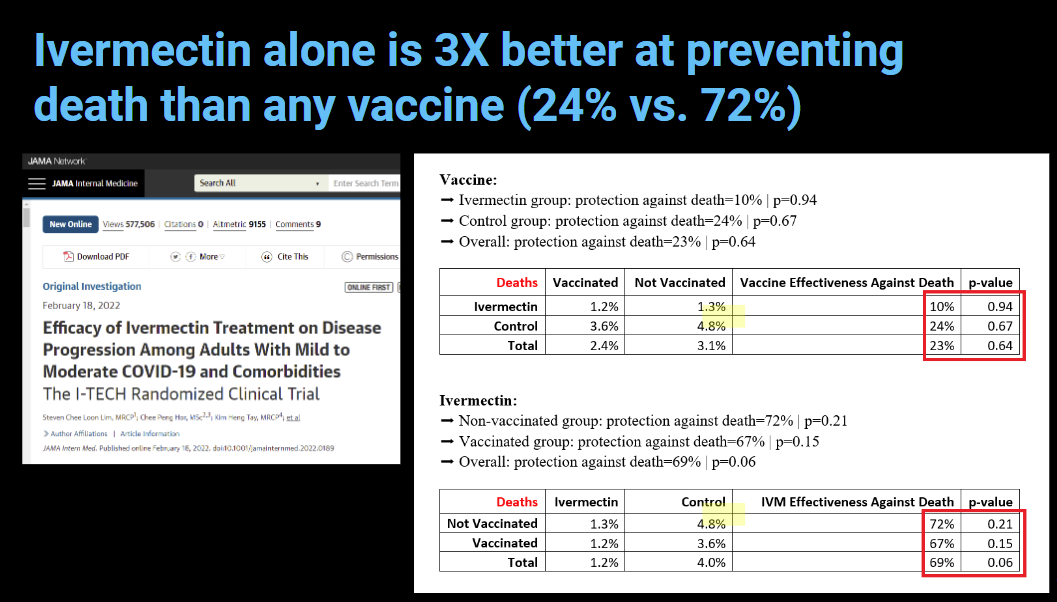The NY Times Reports That Ivermectin Doesn’t Work (Even Though It Does)
By Steve Kirsch
The NY Times reports that ivermectin doesn’t work (even though it does)
Except that a study published in JAMA shows that it does, as do multiple peer-reviewed meta-analyses and systematic reviews. Who is telling you the truth and how can you tell?
Here is the NY Times article which references this study:
Now, since the press is supposed to get comments from BOTH sides, you’d think there would be equal amounts of commentary from people like Pierre Kory and Paul Marik in the Times article, right?
But nope, Zimmer didn’t contact anyone to give the other side of the story. That’s what GOOD reporters do nowadays: they only report the side of the narrative that supports what the government says.
And the researchers will investigate higher dosages, but they will not give it for more than 3 days. Why is that? Because, after all, everyone knows you should never give ivermectin for more than 3 days! <sarcasm off>
What does the peer-reviewed literature say?
There are ten systematic reviews and meta-analyses for ivermectin but they have different conclusions, some saying it works others saying it doesn’t.
It’s unfair to compare the extremes to prove a point; that’s not how science works. For example, this paper argues we should compare the “properly done” Cochrane review with the Kory review and concludes that “At the time of writing, the evidence from rigorous and ethical research does not support the use of ivermectin in preventing or treating COVID-19.” Yet, I just called Kory and he said that the Cochrane review is seriously flawed.
Each side can present what they believe is compelling data.
For example, here’s a slide from my “Things you need to know” deck which took data from a paper on ivermectin to show that ivermectin (at 72%) was 3X better at preventing death than the vaccine (24%).
So if ivermectin actually doesn’t work to prevent death, it suggests the vaccines don’t work either.
For more data, see the c19early site.
The conclusion to all of this is to be careful about which studies you rely on. The most “credible” studies may not be the best ones. They may be the worst ones.
How to tell who is telling the truth
Who is telling you the truth?
There is one method that is pretty reliable: the people who are calling for transparency, answers, and want a debate with no vested interest are almost always the ones telling the truth. Tess Lawrie vs. Dr. Andrew Hill comes to mind. I can’t think of a counter-example to this method.
Nobody seems to want to challenge Dr. Pierre Kory and Dr. Paul Marik in a live debate on ivermectin.
It is not hard to figure out who is telling the truth on that one.
Is there a virus?
Also, for those thinking ahead about what I just wrote in the previous paragraph, I just now sent off an email to Christine Massey challenging her, Lanka, Kaufman, Bailey, etc. to a debate on whether COVID is a virus or not. She received the email and is conferring with her colleagues. Let’s see if they accept. That will be fun. I bet I can sell tickets to that one.



